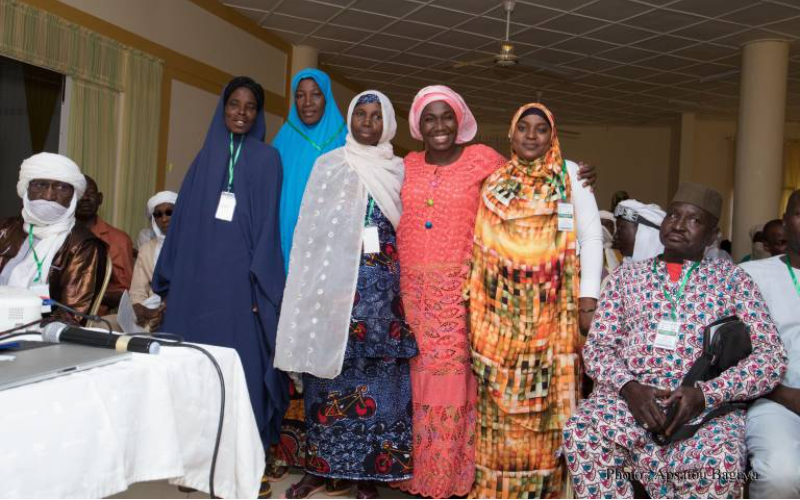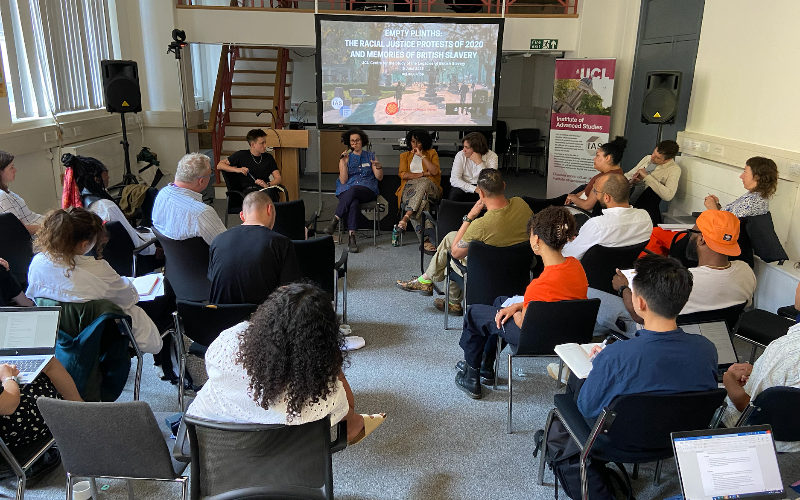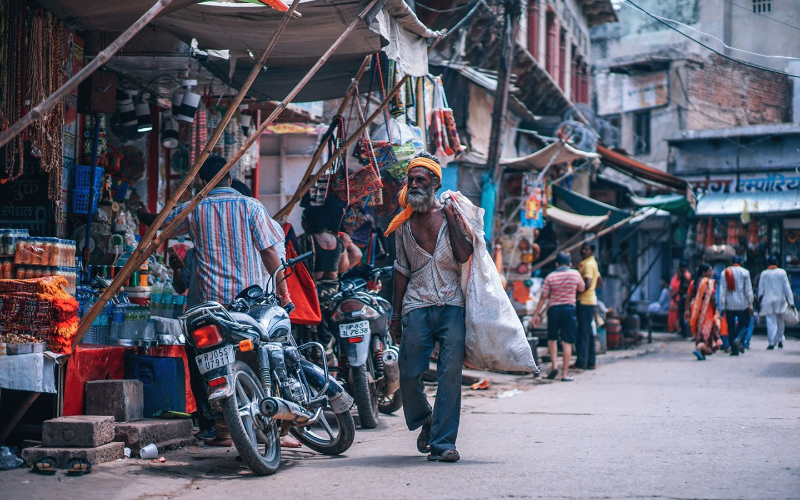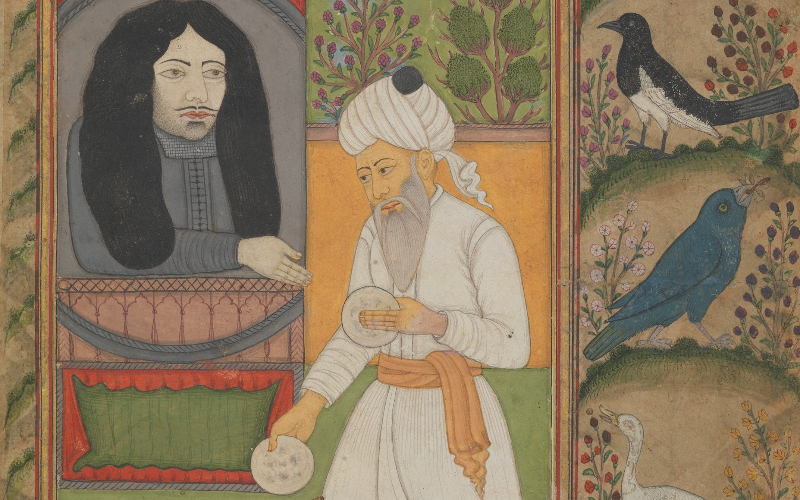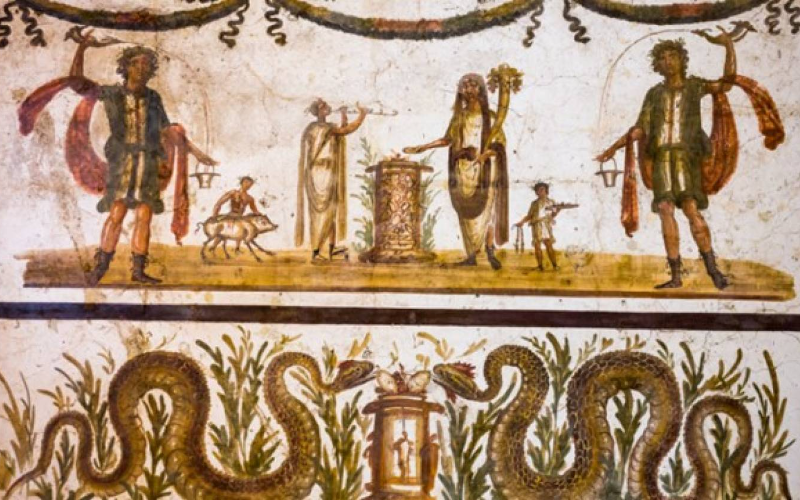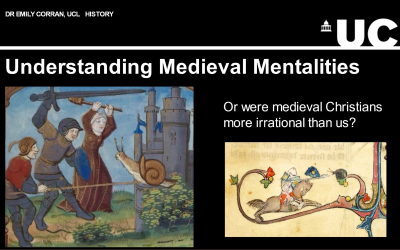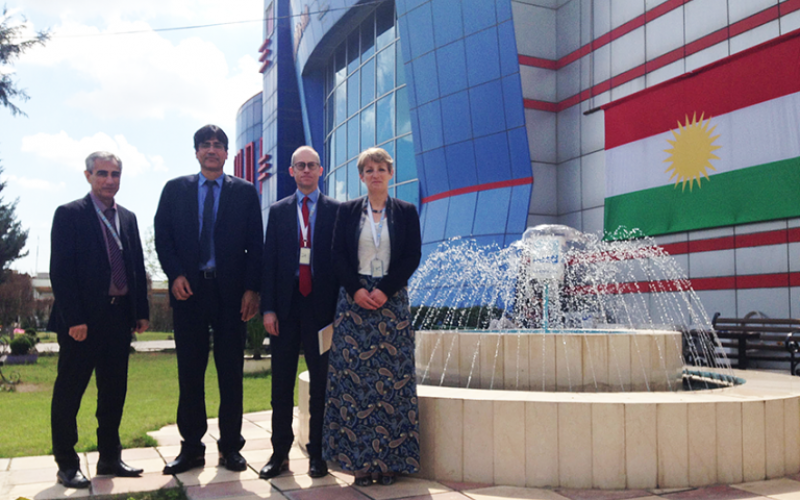Research Projects and Centres
Past Projects
- Women in the Miners' Strike, 1984-85 (2018-2020) - Dr Florence Sutcliffe-Braithwaite
This project's overall objective is to co-produce, with women from coalfield communities, a comprehensive study of women's activism during the miners' strike of 1984-85, and a new history of continuity and change in working-class women's lives from 1945 on. Working-class women's activism during the miners' strike was unprecedented in scope and key to keeping the strike going. The project will produce a major new collection of oral histories, and use the strike as a lens to examine working-class experiences and subjectivities more broadly in postwar Britain.
- Magical Thinking Past and Present - Prof Sophie Page
In 2018 the medieval historian Sophie Page co-curated the exhibition Spellbound: Magic, Ritual and Witchcraft at the Ashmolean Museum, for which works were commissioned from artists Annie Cattrell and Katharine Dowson to make connections between past and present ideas and experiences of magic. Magical Thinking Past and Present supported Sophie Page’s further collaborative work to continue exploring ideas about magical thinking and the medieval cosmos.
- Chronic Disease in Sub-Saharan Africa: A Critical History (2015-2020) - Prof Megan Vaughan
This Wellcome Trust-funded project seeks to critically evaluate the history of what is viewed as an 'epidemic' of chronic and non-communicable diseases in sub-Saharan Africa and provide an historical account of the evolution of chronic and non-communicable diseases in Africa, going beyond a simple account of 'transition', and to contribute to wider debates on the nature of epidemiological change.
- Windrush Cricket - Dr Michael Collins
How did playing cricket in the street or the park, setting up new cricket clubs for both recreation and as social networks, and the experience of playing cricket in predominantly white but increasingly diverse communities, shape the experience of migration and settlement over time? What role did cricket play in the creation of black Atlantic cultures and identities, as a link between emigration and immigration, and how did it contribute to the complex and contested emergence of black British identities? Why was cricket so important to the social and cultural life of these communities, and why did it decline over time?
In collaboration with Hackney Council and Hackney Museum, the ‘Windrush Cricket’ oral history project seeks to explore some of these questions through close study of the experiences of Hackney residents. It will hopefully be able to build on this to include London, and other cities and towns across England.
- LESLAN 2, Legacies of Slavery in Niger: Mobilising Memory, Heritage, and Politics to End Abuse - Prof Benedetta Rossi
LESLAN supports the activities of the Republic of Niger’s national Anti-Slavery Task Force and Timidria, Niger’s main anti-slavery NGO, in their efforts to improve the circumstances of persons of slave descent. During phase 1 of the project (2018-2020), LESLAN conducted research on the historical and contemporary dimensions of slavery in Niger as well as undertaking multiple creative initiatives – such as staging a public exhibition, sponsoring an art competition and supporting a public music concert – that influenced policymakers at national and international levels, as well as raising public awareness of the fight for human rights led by Timidria in Niger.
- Democracy, Autocracy and Sovereign Debt - Dr Coşkun Tunçer
Sovereign debt is a financial as well as a political topic. Politics shapes the way governments borrow and repay. The main research question of this project is how political systems influenced the way peripheral governments managed their debt in the first financial globalisation, from c. 1870 to 1914. We approach this by studying a number of case studies that mix different political regimes and debt records. Besides contributing to our understanding of how politics affected creditor-governments relations before 1914, the topic has also contemporary relevance, since indebted governments face increasingly more political challenges to manage their fiscal accounts nowadays. This project wass supported by the British Academy Newton Fund (2016-19).
- Re-imagining Italianità: opera and musical culture in transnational perspective (2016-2019) - Prof Axel Körner
'Re-imagining italianità' is an international research network financed by the Leverhulme Trust and based at the UCL Centre for Transnational History, with collaborators in Cambridge, Italy, Brown University (US) and Campinas (Brazil). Over a period of three years, starting in February 2016, the project will investigate nineteenth-century Italian opera on a global scale in order to critically assess existing ideas on the relationship between music and national identity. Based on a cross-disciplinary collaboration, the network will analyse nineteenth-century discourse on music and national character; trace the global circulation of people, ideas and goods associated with the Italian opera industry; and examine particular cities and institutions as sites of cultural encounters.
- Inner Lives: Emotions, Identity, and the Supernatural, 1300-1900 (2015-2018) - Prof Sophie Page
In the Western world today, witches, necromancers, demonologists, and magicians are the stuff of legends and stories, but they once seemed very real and inspired powerful emotions: anxiety and terror, envy and anger, pain and grief. The supernatural was essential to a subtle, sophisticated, and pervasive worldview, and was experienced on a daily basis by sane, intelligent people whose outlook on the universe was no less coherent than our own.
Understanding how our ancestors felt about these potent yet unseen environmental forces, and how these feelings changed between 1300 and 1900, is the main purpose of this three-year research project (2015-2018). It brings together historians of the medieval, early modern, and modern periods to examine evidence of human engagement with diverse supernatural realms (through prayer and contemplation, ritual and conjuration, astrology and divination) in the contexts of cosmos, community, and household, with a view to reconstructing the emotions that connected past selves with the supernatural and, in turn and ultimately, inner lives.
Magical Thinking Past and Present is a new project supporting Sophie Page’s further collaborative work with the artists Annie Cattrell and Katharine Dowson.
- Passionate Politics (2014-2017) - Prof Axel Körner
A key strand of western political thought has tended to view the passions and the passionate nature of human beings with suspicion if not outright hostility. Until recently, the passions have drawn the attention of most political theorists and philosophers above all because of their capacity to wreak havoc in the social order. Whatever the term employed - emotions, feelings, affect, desires - they have been called at best incompatible with, at worst disruptive to our prevailing ideal of politics.
From an interdisciplinary perspective, however, the place of the passions in politics looks very different. Emotions are now accepted to be cognitive modes of thought in themselves. But if our desires and predilections influence the choices we make, they are necessarily caught up in political judgements, too. The passions are also crucial for providing the emotional basis of individual and social identities, and thus for the collective political communities in which we are all caught up. Similarly, no movement or ideology could do without the passionate conviction of its members to drive political action or change. Our understanding of key moments of social change thus remains impoverished if we fail to take into account the importance of grief as a response to social upheaval, the role of love and empathy in the creation of political and social solidarities, or the roots of political dissent in anger.
- Public Finances and the Union, 1707-1978 (2016-2019) - Prof Julian Hoppit
This research, funded by the Leverhulme Trust, considers the territoriality of central government taxation and expenditure within Britain and Ireland, including public reactions to these measures.
- China and the Cross-Cultural Humanities (2017-2018) - Prof Vivienne Lo
A Wellcome Seed Award to fund preliminary research into this topic.
- Transnational Monarchy: Rethinking the Habsburg Empire, 1804-1918 (2015-2018) - Prof Axel Körner
Conflicts between nationalities have long been seen as the Habsburg Empire's fatal weakness, explaining its eventual collapse in the wake of World War One. A transnational approach to the history of the Empire questions the validity of this interpretation. This project, funded by the Leverhulme Trust, employs conceptual challenges emerging from the field of transnational studies to reassess the nationality question in the Habsburg Empire. It does so by means of a specific set of research questions applied to four case studies. Three of these case studies investigate specific nationalities within the Empire (Czechs, Italians, and German speakers from Transylvania); the fourth case study looks at cultural practices connected to music theatre within the Empire. Opera created links between the elites and the middle classes, while also cutting across national boundaries.
- Public Knowledge and Nation-Building in Nineteenth-Century Latin America (2014-2017) - Prof Nicola Miller
This research, which is generously funded by the Leverhulme Trust, explores how the transnational circulation of knowledge shaped the formation of nation-states in Latin America during the century after Iberian rule was defeated in the 1820s. Adopting a cross-disciplinary approach, it combines the methods of global intellectual history and sociology of knowledge to develop a new way of thinking about nations as communities of shared knowledge. This idea makes it possible to take into account how nations are experienced and enacted as well as how they are imagined.
- Remembering 1960s British Cinema-going - Prof Melvyn Stokes
Remembering 1960s British Cinema-going was a project funded by the Arts & Humanities Research Council that aimed to make many more people aware of the research done by an earlier AHRC project, Cultural Memory and British Cinema-going of the 1960s (2013-15). This collected, in the form of anonymised questionnaires and interviews, the memories of almost 1000 people of 'going to the pictures' half a century ago. We are extremely grateful to everyone who shared their recollections in these ways. Remembering 1960s British Cinema-going will co-organise, with local partners, more than 40 events around the UK to present the fascinating results of the earlier project. Our partners will include local civic and history societies, film clubs, University of the Third Age members and schools.
- Recognition and Repatriation in Philanthropy - Dr Aaron Graham
The Recognition and Repatriation in Philanthropy project would have addressed issues of recognition and reparation in philanthropy by developing a ‘toolkit’ of principles that will allow institutions to address the contested periods of their histories. Sadly, Dr Graham passed away in 2023.
- Pre-2015 Projects
- Cultural Memory and British Cinema-going of the 1960s (2012-2015)
- Legacies of British Slave-ownership (2009-2015)
- Projet Volterra (2005-2015): Promoting the study of Roman law
- The East India Company at Home, 1757-1857 (2012-2014)
- The American Way of Life: Images of the United States in Nineteenth Century Europe and Latin America (2005-2009)
- English Monastic Archives (1999-2005)
 Close
Close


